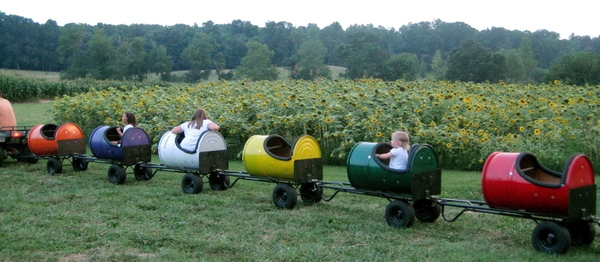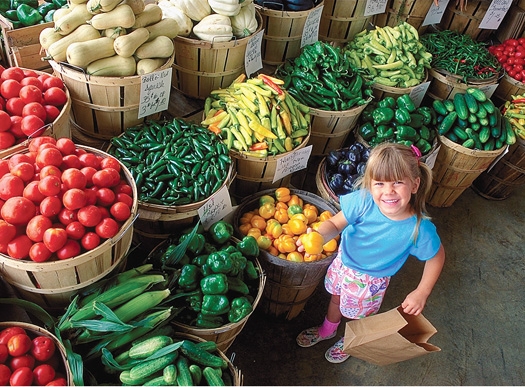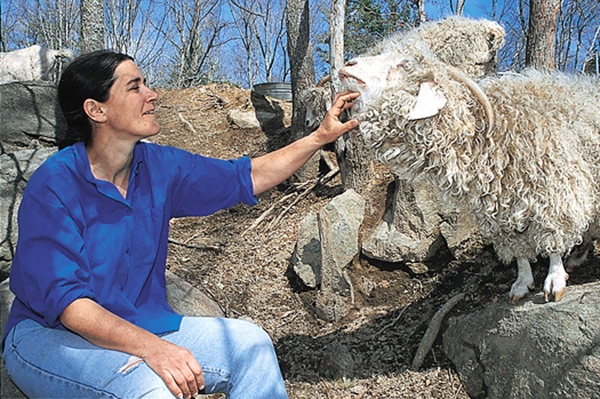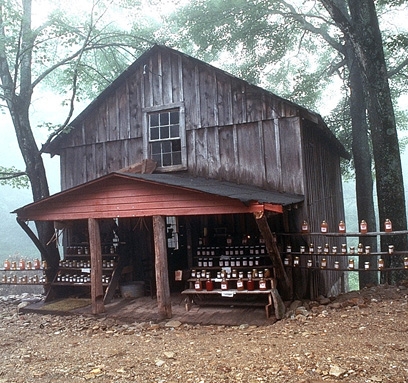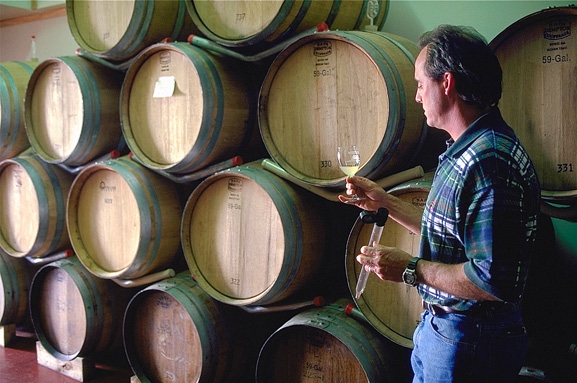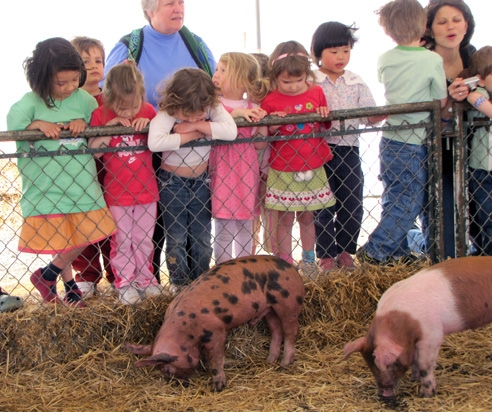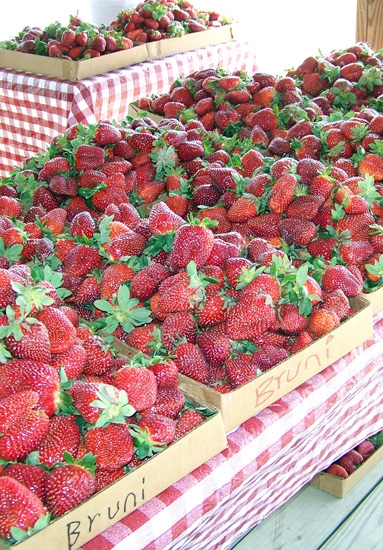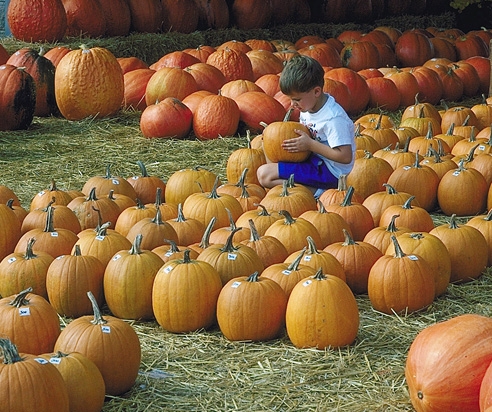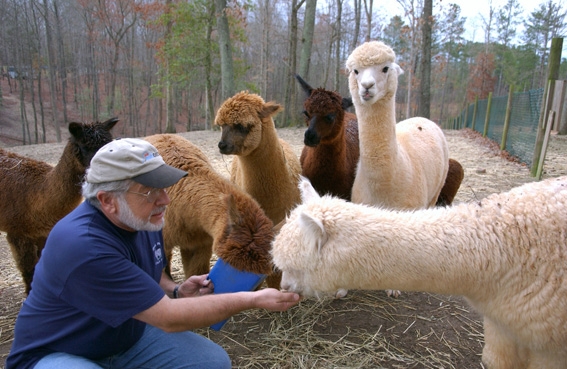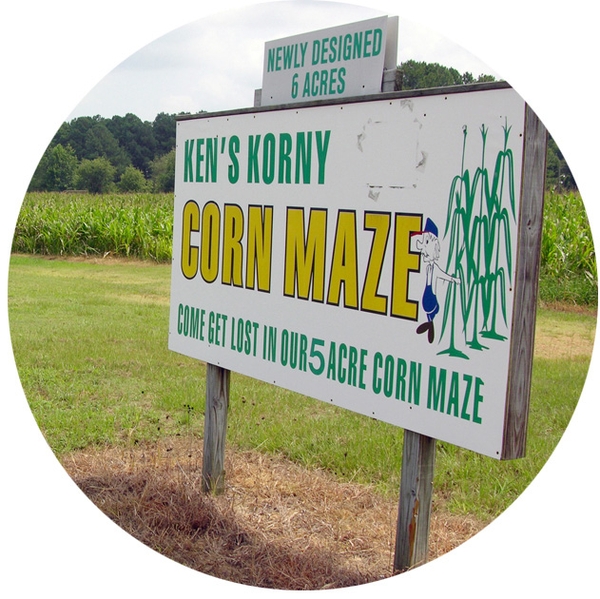This fact sheet is part of a series developed as a result of the East Coast Agritourism Webinar Series, a partnership between North Carolina State University and Rutgers University.
What is Agritourism?
Agritourism is the business of establishing farms as travel destinations for educational and recreational purposes. Often, agritourism activities provide supplemental income to the farm business or owner.
Agritourism is also associated with various terms used over the years to refer to similar farm activities: rural tourism, agri-tourism, agrotourism, nature-based tourism, agritainment, value-added, nature tourism. Agritourism is often considered a subset of rural tourism, which differs from agritourism in that rural tourism does not necessarily occur on a farm and does not always generate supplemental income for the agricultural enterprise. For the purposes of this resource, the term agritourism will be used.
Examples of Agritourism:
U-Pick Operations or Pick Your Own (PYO)
Visitors are allowed to harvest (pick) their own fruits, vegetables, and other products. U-Pick operations can include pumpkins, apples, strawberries, peaches, grapes, blackberries, Christmas trees, and more.
On-Farm Produce Stand
Rather than have visitors pick their own fruits and vegetables, on-farm produce stands provide harvested fruits, vegetables, or value-added products (such as jams, salsa, canned fruits and vegetables) for retail.
On-Farm Restaurant, Dinners, Bakery
Some farms may choose to offer food and beverages to guests visiting the farm. Another option is to offer on-farm meals several times a year where visitors are served food straight from the farm.
Educational Farm Tours and Demonstrations
These types of tours and demonstrations are often interactive and provide hands-on education. Tours and demonstrations can be given on an individual basis to the visiting public and to school groups or other organizations. Examples include cheese production, milking demonstrations, picking cotton, how-to classes (such as canning), and discussions on the history of farming.
On-Farm Activities
Many farms offer a variety of on-farm activities for kids and adults. For example, corn mazes, U-Pick, wagon/hay/sleigh rides, petting zoos, pig races, horseback riding, hunting, and fishing.
Animal Exhibits
Animal exhibits often allow visitors to view various farm-related animals up close for educational purposes (such as an alpaca or a butterfly farm) or entertainment purposes (as with a petting zoo).
On-Farm Bed and Breakfast, Inn, Cottage, or Campground
Overnight lodging on the farm can include meals, participation in various farm chores, or other area attractions (horseback riding, tickets to a museum). Often these supplementary options cost an additional fee or are included in a package.
Hands-On Farm Chores
Hands-on farm chores allow visitors to actively participate in farm chores while learning about life on a farm. Chores can include milking cows, feeding farm animals, collecting eggs, shearing sheep, and baling hay.
Farm Vacations and Dude Ranches
On-farm lodging (bed and breakfast, inn, and cottages) combined with hands-on farm chores (shearing sheep, feeding farm animals) provides visitors with an extended stay and farm experience.
Vineyards and Wineries
Growers can host vineyard tours, winemaking demonstrations, wine tastings, wine classes, or events and festivals for visitors or local businesses.
On-Farm Festivals and Events (Harvest Festivals, Music Festivals)
Growers can host celebrations of a specific event or interest, a unique aspect of a community, or a specific holiday. For example, a seasonal festival (fall harvest festival), music festival, arts and crafts festival, flower festival.
Wildlife Viewing and Photography
Farms can provide a safe and suitable environment for visitors seeking opportunities to view and photograph wildlife.
Why Agritourism?
Changes in the economy, combined with fluctuations in agricultural income and the desire to preserve land and resources, have placed increased pressure on farmers across the nation to examine alternative economic opportunities. Many farmers are turning to agritourism as an entrepreneurial response to increase on-farm sales of their value-added products and services and generate revenues directly associated with recreational and tourism activities (McGehee, 2007). In recent years, agritourism has seen a growth in popularity across the nation. For example, in 2007, the U.S. Department of Agriculture (USDA) Census of Agriculture reported 160,000 U.S. farms were participating in some form of direct sales/agritourism with receipts totaling $566,834 million, an increase of approximately 180 percent from 2002. Of these, 23,350 farms claimed income from non-produce related recreational activities such as farm tours, hunting, and fishing.
Different audiences are interested in agritourism for various reasons. For example:
Producer (Farmer) Perspective
- Expand or supplement farm income
- Diversify product and service lines
- Keep the farmland in the family
- Preserve the heritage of the land
- Provide employment for family members
- Pursue a personal interest or hobby
- Educate the general public
- Gain tax incentives
- Socialize with visitors
Visitor Perspective
Far more people now live in urban areas than in rural ones. As a result, they may have limited connections with farms and increased interest in rural lifestyles and farming, or nostalgia or an interest in learning about family and cultural history through farming.
- Travelers are increasingly seeking unique, authentic experiences.
- Changes in travel behavior have led to an increase in weekend and local travel and increase in travel to rural areas to visit local attractions.
- Consumers are showing a growing interest in understanding food production and in buying fresh, locally produced products.
- Visiting a farm is an educational, interactive experience the entire family can enjoy.
Economic Perspective
- Provides income and jobs for local residents
- Encourages visitation to the region
- Generates money from outside visitors that often stays within the local economy
- Improves quality of life: Funds generated can help support community development. Community events and attractions intended for outside visitors also benefit and attract residents.
Using Agritourism to Enhance Your Farm
Virginia Cooperative Extension (2001) describes three examples of how agritourism can fit into a farm plan:
- A supplementary enterprise: Agritourism could be a minor activity that would support the other products on the farm. For instance, if the primary enterprise is livestock production, inviting school groups to the farm several days a month to learn about animals and farming could supplement income.
- A complementary enterprise. Agritourism activities would share equal footing with other enterprises in the farm’s product mix. For example, there may be an apple production enterprise on the farm. By selling half of the apples to a wholesaler and the remainder to “pick-your-own” guests, the two enterprises (the wholesale market and the direct market) would be complementary enterprises.
- The primary enterprise. Agritourism would be the dominant activity on the farm, such as opening a winery and inviting guests to spend the day tasting and learning about wine. The wine tasting package may also include overnight lodging in a cottage on the property or involve producing grapes on the farm to supplement the wine-tasting activities. Regardless, because agritourism is the main part of the farm product mix, it becomes the primary enterprise.
References
Blacka, A., P. Couture, C. Coale, J. Dooley, A. Hankins, A.Lastovica, B.Mihalik, C. Reed, M.Uysal. (2001).Agri-Tourism.Fact Sheet 310-003.Virginia Cooperative Extension.
McGehee, N. G. (2007). “An agritourism system model: A Weberian perspective.”Journal of Sustainable Tourism, 15, 111-124.
U.S. Department of Agriculture, National Agricultural Statistics Service.(2007). 2007 Census of Agriculture.
Additional Resources
North Carolina Tourism Extension (Available on the Tourism Extension website is a growing list of agritourism-specific resources by topic)
North Carolina Agritourism Networking Association
NC Department of Agriculture and Consumer Services Agritourism Office
Rutgers – Food Policy Institute
National Extension Tourism (NET)
Networking Association for Farm Direct Marketing and Agritourism (NAFDMA)
Prepared By
Samantha Rozier Rich, Assistant Professor and Tourism Extension Specialist, North Carolina State University
Stacy Tomas, Assistant Professor and Tourism Extension Specialist, North Carolina State University
Susan Colucci, Area Specialized Agent, Agriculture, North Carolina Cooperative Extension Service
Stephen Komar, County Agricultural and Resource Management Agent, Rutgers University
Brian Schilling, Extension Specialist in Agricultural Policy, Rutgers University
Jenny Carleo, County Agricultural and Resource Management Agent, Rutgers University
Publication date: Jan. 1, 2010
AG-734-01
N.C. Cooperative Extension prohibits discrimination and harassment regardless of age, color, disability, family and marital status, gender identity, national origin, political beliefs, race, religion, sex (including pregnancy), sexual orientation and veteran status.

